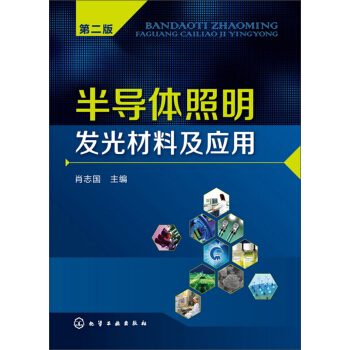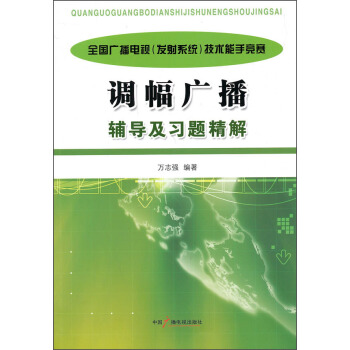![量子保密通信 [Quantum Private Communication]](https://pic.qciss.net/10336150/3afd663f-bb40-42a6-830f-a0e7de3a608b.jpg)

具体描述
内容简介
Quantum Private Communication covers the fundamentals of the areas of secure communication, quantum cryptography, quantum communication, and their physical implementation with applications. The book appears in a timely manner for an emerging field at the crossroad of classic private communication and quantum physics.Graduate students and scientists alike in communication engineering,computer science, electronic engineering, physics and mathematics will benefit from the book.
作者简介
Professor Guihua Zeng teaches and conducts research at the Department of Electronic Engineering of Shanghai Jiao Tong University and spent an Alexander von Humboldt Fellowship at the University of Freiburg,Germany.目录
1 Introduction1.1 Security Requirements of Communication
1.2 Overview of Quantum Private Communication
1.3 Private Communication Models
1.3.1 Classic Secure Communication Model
1.3.2 Quantum Private Communication Model
1.4 History of Quantum Private Communication
1.5 Relationship with Other Subjects
1.6 Notations and Conventions
1.6.1 Random Variables
1.6.2 Cryptosystem and Cipher
References
2 Quantum Security Theory
2.1 Introduction
2.2 Mathematical Background
2.2.1 Hilbert Space
2.2.2 Properties of Hilbert Space
2.2.3 Operators
2.2.4 Several Important Operators
2.2.5 Matrices Decomposition
2.3 Introduction to Quantum Mechanics
2.3.1 Quantum Systems
2.3.2 Dynamic Characteristics of Quantum Systems
2.3.3 Information Retrieval of Quantum Systems
2.3.4 Fundament of Quantum Optics
2.4 Introduction to Information Theory
2.4.1 Entropy
2.4.2 Mutual Information
2.4.3 Quantum Fano Inequality
2.5 Introduction to Complexity Theory
2.5.1 Turing Machine
2.5.2 Classic Complexity
2.5.3 Quantum Complexity
2.6 Security Model
2.6.1 Information-theoretic Security
2.6.2 Computational Security
2.6.3 Attack Strategy Analysis
References
3 Quantum Bits
3.1 Classic Bits
3.2 Quantum Bit Definition
3.2.1 Binary Qubit
3.2.2 P-ary Qubit
3.2.3 Composite Qubit
3.3 Quantum Bit Transformation
3.3.1 Quantum Logic Gates
3.3.2 Quantum Circuits
3.4 Mathematical Property
3.4.1 Bloch Sphere
3.4.2 Orthogonality of Opposite Points
3.4.3 Rotations on Bloch Sphere
3.5 Physical Property
3.5.1 Superposition
3.5.2 Entanglement
3.5.3 Distinguishability
3.5.4 Quantum No-cloning
3.6 Information Property
3.6.1 Single Qubit Information
3.6.2 Nonorthogonal Qubits Information
References
4 Quantum Key Distribution
4.1 Intuition on QKD
4.2 Standard QKD Schemes
4.2.1 BB84 Protocol
4.2.2 B92 Protocol
4.3 Quantum Communication Model for QKD
4.3.1 Quantum Source
4.3.2 Quantum Channel
4.3.3 Quantum Sink
4.4 Reconciliation
4.4.1 Reconciliation Model
4.4.2 Binary Reconciliation Protocol
4.4.3 Non-Binary Reconciliation Protocol
4.5 Privacy Amplification
4.5.1 Privacy Amplification Principle
4.5.2 Privacy Amplification Techniques
4.6 Security Model for QKD
4.6.1 Security Theory
4.6.2 Typical Attack Strategies
References
5 Quantum Cryptosystem
5.1 Introduction
5.2 QKD-based Cryptosystem
5.3 Quantum Vernam Cipher
5.3.1 Classic Vernam Algorithm
5.3.2 Quantum Vernam Cipher
5.3.3 Private Quantum Channel
5.3.4 Security Model
5.4 Typical Quantum Vernam Ciphers
5.4.1 Classic-key-based Quantum Vernam Cipher
5.4.2 Bell-key-based Quantum Vernam Cipher
5.4.3 Teleportation as Quantum Vernam Cipher
5.5 Quantum Block Cipher
5.5.1 Theoretical Model
5.5.2 Quantum Block Algorithm for Binary Bits
5.6 Quantum Public Key Cryptosystem
5.7 Typical Quantum Public-key Algorithms
5.7.1 Algorithm based Subset-sum Problem
5.7.2 Algorithm based Quantum Coding
References
6 Quantum Authentication
6.1 Introduction
6.2 Authentication Theory
6.2.1 Authentication Categories
6.2.2 Security Model
6.3 Message Authentication Code
6.3.1 Encoding Approach
6.3.2 Hash Function Approach
6.4 Quantum Identity Authentication
6.4.1 Scheme Description
6.4.2 Security Analysis
6.4.3 In Imperfect Channel
6.5 Quantum Signature Principle
6.6 Arbitrated Quantum Signature
6.6.1 Algorithm Description
6.6.2 Security Analysis
6.7 True Quantum Signature
6.7.1 Algorithm Description
6.7.2 Security Analysis
……
Index
精彩书摘
This chapter devotes to building a security infrastructure for the quantum private communication. To reach this aim, some fundamental subjects including quantum mechanics, quantum information theory and quantum complexity theory are introduced. Of these fundamental subjects, the quantum mechanics is the cornerstone. With these fundamental subjects, a security theory for the quantum private communication is built.In previous chapter, an overview of the quantum private communication has been presented and a quantum private communication model has been constructed. This chapter investigates the security theory for the quantum private communication. For convenience, this kind of security theory is called a quantum security theory in this book. As usual, both the information theoretic security and computational security which is very useful in practical applications are contained in the quantum security theory. Different from the scenarios in the classic private communication, however, the information- theoretic security and computational security are here based on the quantum information theory and quantum complexity theory, respectively. To construct the quantum security theory, three aspects are involved including the information theory, complexity theory, and security model. The information theory contains both the Shannon information theory and quantum information theory. The complexity theory is associated with the classic complexity and quantum complexity theory which is based on the quantum Turing machine (TM). And the security model is a general description for the quantum security theory based on the information theory and complexity theory. Before describing in detail the quantum security theory, some fundamentals including the mathematical backgrounds and quantum mechanics are described. They are actually the cornerstones of the quantum security theory.
前言/序言
Since Wiesner first found that quantum laws may be applied for protecting legitimate information in 1969, the quantum cryptology——a combination of the quantum physics and classic cryptology——has attracted much attention since then. With further investigations, the infrastructure of the quantum cryptology has become more and more clear. To conclude these research results, some excellent books have been devoted to describe various aspects of the quantum cryptology, such as the Quantum computation and quantum information by Nielsen and Chuang, Quantum cryptography and secret-key distillation using quantum cryptography by Assche, and Quantum cryptology by Zeng. As a main application direction of the quantum cryptology, the quantum private communication which combines the quantum cryptology and communication techniques has recently made great progress. By far, various investigations on this aspect have been presented, even some techniques have been applied in practices. This means that the quantum private communication has entered gradually the commerce field. This book devotes to describe fundamental principles, typical schemes, and technical implementations for the quantum private communication.Because the quantum private communication has currently become a practical reality with products available commercially, it is important to focus not only on the theoretical topics but also on the practical issues. Accordingly, this book arranges the contents from pure theoretical descriptions to practical applications. To reach this aim, a broad range of materials are covered in this book, including how to protect confidentiality and authentication of the private communication using quantum tools and typical techniques for practical applications of quantum private communication in fiber telecommunication systems, wireless optical communication (including satellite communication), IP networks, and mobile communication systems, etc. Consider that cryptology, quantum physics, and information theory are necessary ingredients to
build framework of the quantum private communication, brief introduction on these issues is employed to make the book self-consistent.
This book originated out of a graduate course of lectures in Quantum Secure Communication given at the Shanghai Jiaotong University. The con- tent of this book is based on my investigations on the quantum cryptography as well as the quantum private communication since 1997.
用户评价
这本《量子保密通信》的书名一听就很有吸引力,我一直对信息安全领域的前沿技术很感兴趣,特别是那些听起来充满了未来感的概念。量子保密通信,光是这个名字就让我想象到无数科幻电影里的场景,简直是现实版的“不可能的任务”。我好奇它究竟是如何利用量子力学的奇特性质来保证通信的绝对安全,是像传说中那样,任何窃听都会被立刻察觉,还是有更深层次的原理支撑。我非常期待书中能够深入浅出地解释量子叠加、量子纠缠这些听起来玄之又玄的概念,并且能够将其与实际的通信过程联系起来。我希望它不仅仅是理论的堆砌,而是能够提供一些关于实际应用场景的描绘,比如它将如何影响未来的金融交易、国家安全,甚至是我们的日常生活。我甚至幻想书中会提到一些尚未公开的,正在研发中的量子通信技术,那样的话,这本书的价值就更不可估量了。我准备好迎接一场智力上的冒险,去探索这个令人着迷的全新领域,看看它是否真的能为我们揭示一个更加安全可靠的通信未来。
评分这本书的书名《量子保密通信》让我立刻联想到的是科幻小说里那种“无懈可击”的安全传输方式。我一直觉得,信息安全就像一场永无止境的猫鼠游戏,每一次技术的突破都伴随着新的威胁出现。而“量子”这个词,似乎暗示着一种更高维度的解决方案,一种能够从根本上解决安全问题的力量。我非常好奇,它所说的“保密”究竟能达到什么样的程度?是理论上的绝对安全,还是在实际操作中能够达到比现有技术高得多的安全性?我希望书中能够解释量子通信在面对各种攻击(例如窃听、重放攻击)时,其独特的防御机制是什么。我尤其想知道,它是否能够为我们提供一种“后量子密码学”的视角,即如何在量子计算机出现后,仍然能够保持信息的安全。这本书是否会探讨量子通信在不同应用场景下的可行性,比如军事通信、金融数据传输,甚至是个人隐私保护?我很期待它能给我带来一些关于未来信息安全格局的启示。
评分在我看来,《量子保密通信》这个书名本身就充满了未来感和神秘感。我一直以来都对信息安全领域的发展有着浓厚的兴趣,尤其是那些能够颠覆现有格局的革命性技术。我非常好奇,这本书将如何解释量子力学的原理是如何被应用到通信安全中的。例如,它是否会深入探讨量子叠加和量子纠缠这两个核心概念,并说明它们如何为通信提供前所未有的安全性?我希望书中能够用一种严谨又不失趣味的方式来阐述这些复杂的物理学原理,并且能够将其与实际的通信协议和技术联系起来。我特别期待书中能够介绍一些具体的量子保密通信协议,比如BB84协议,并分析其工作原理和优势。此外,我也想知道,量子保密通信在实际应用中会面临哪些挑战,比如技术成熟度、成本以及部署难度等等。这本书是否能够给我一个关于量子保密通信发展现状和未来前景的全面了解?我渴望通过阅读这本书,能够更清晰地认识到这一前沿技术对我们未来社会可能带来的深远影响。
评分我最近在寻找一些能够拓展我技术视野的书籍,而《量子保密通信》这个名字恰好抓住了我的眼球。我本身就对密码学有着浓厚的兴趣,对现有的公钥加密、私钥加密等技术原理有一定的了解。因此,我特别好奇量子保密通信究竟是如何颠覆或补充现有加密体系的。它是否意味着我们现有的许多加密算法将面临被破解的风险,或者它将提供一种完全不同于现有范式的安全保障?书中会不会详细介绍量子密钥分发(QKD)的各种实现方式,例如基于光子、光纤的原理,以及它们在实际部署中可能遇到的挑战和解决方案?我希望作者能够用一种清晰易懂的方式来阐述那些听起来非常高深的物理学概念,避免过于晦涩的数学公式,让我这个非物理专业背景的读者也能有所收获。更重要的是,我希望这本书能够让我对量子保密通信的未来发展趋势有一个初步的认识,它是否已经进入了商业化阶段,或者仍处于实验室研究阶段?对于一个对技术发展保持高度敏感的人来说,这些信息都至关重要。
评分老实说,我并不是一个在物理学领域有深厚造诣的人,但是“量子保密通信”这个书名,却像一块磁铁一样吸引了我。我之所以会被吸引,是因为它听起来像是科技界最前沿的探索,是人类智慧在理解和运用自然规律上的又一次飞跃。我好奇,这本书会如何将那些深奥的量子物理原理,比如量子叠加和量子纠缠,转化为实际的通信技术?我希望它能够用一种相对容易理解的方式来阐述,避免过多的专业术语和复杂的数学推导,让我这个普通读者也能窥探到其中的奥秘。我更关心的是,这种“量子保密通信”究竟能为我们带来什么样的好处?它是否能够彻底解决我们现在面临的许多网络安全问题,例如数据泄露、身份盗窃?我希望这本书能够给我描绘一个清晰的图景,让我们看到量子保密通信在未来可能扮演的角色,以及它将如何改变我们的生活。我期待着通过这本书,能够对这个新兴领域有一个初步但深刻的认识。
评分不错,是正版。但是英文的,费劲
评分薄纸包裹,品相低劣
评分包装不错,如果做量子密码的话,没必要看这本了
评分不错,是正版。但是英文的,费劲
评分好…………………………………
评分好…………………………………
评分好…………………………………
评分有点用很好不错
评分包装不错,如果做量子密码的话,没必要看这本了
相关图书
本站所有内容均为互联网搜索引擎提供的公开搜索信息,本站不存储任何数据与内容,任何内容与数据均与本站无关,如有需要请联系相关搜索引擎包括但不限于百度,google,bing,sogou 等
© 2026 book.teaonline.club All Rights Reserved. 图书大百科 版权所有






![材料科学与工程著作系列:微观组织的分析电子显微学表征(英文版) [HEP Series in Materials Science and Engineering:Characterization of Microstructures by Analytical Electron Microscopy(AEM)] pdf epub mobi 电子书 下载](https://pic.qciss.net/10903780/565524f9N3c15688b.jpg)







![国防科技著作精品译丛·雷达电子战系列:天线系统及其在电子战系统中的应用 [Antenna Systems and Electronic Warfare Applications] pdf epub mobi 电子书 下载](https://pic.qciss.net/11450209/rBEhU1NoMWIIAAAAAAMTtm-2WFcAAM5wQP2rkMAAxPO470.jpg)





![国外电子与通信教材系列:数字设计与Verilog实现(第五版) [Digital Design: With an Introduction to the Verilog HDL, Fifth Edition] pdf epub mobi 电子书 下载](https://pic.qciss.net/11622780/54c22fd2N7c73c93a.jpg)